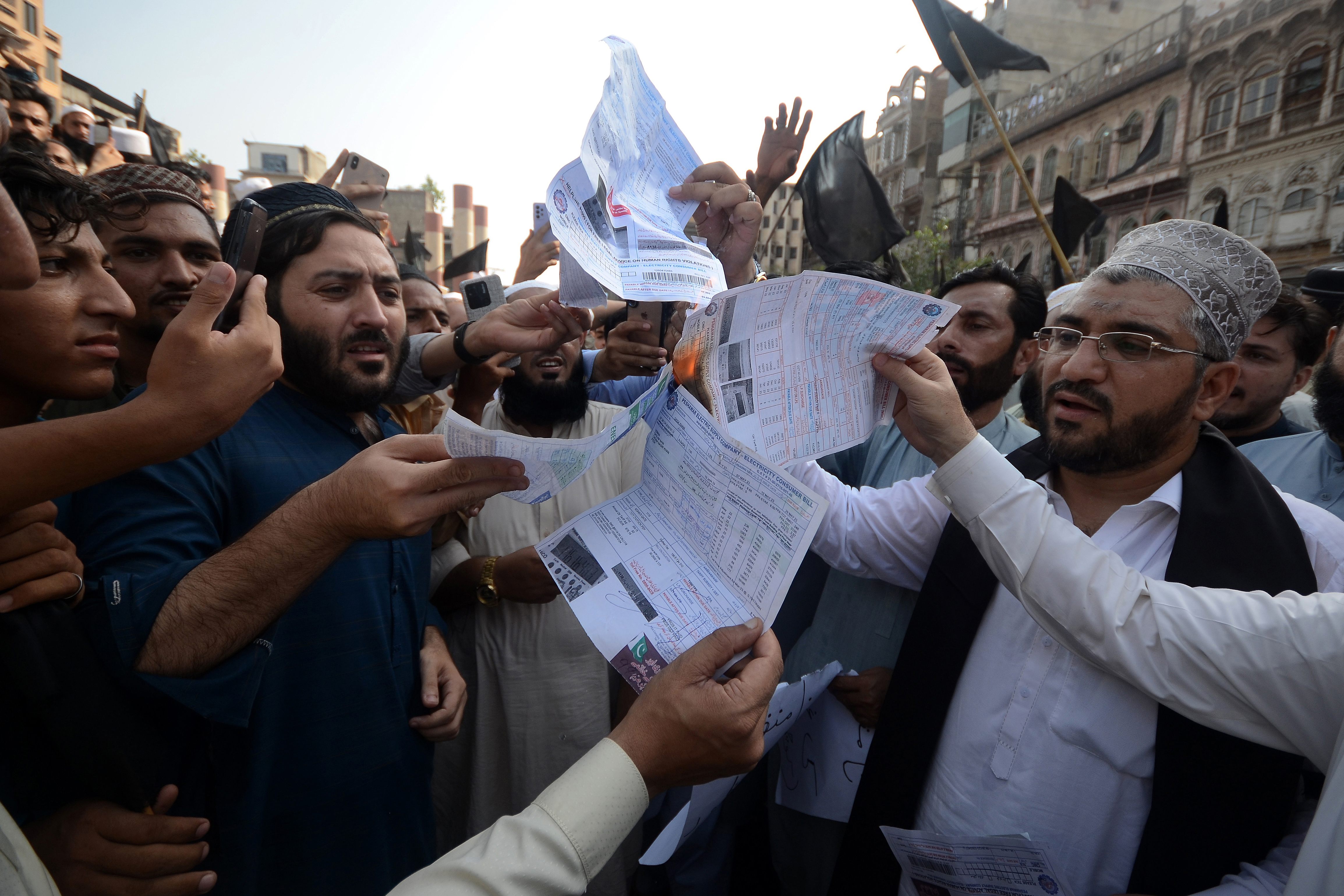
Islamabad, Pakistan – The government of Pakistan has expressed its helplessness to lawmakers in the face of inflated power costs, surging fuel prices and fast-rising inflation, as public resentment risks bubbling over with multiple protests across the country.
Interim Finance Minister Shamshad Akhtar told members of Pakistan’s upper house of parliament on Wednesday that the country has no “fiscal space” to provide any immediate relief to the public. She went on to warn there might be a further increase in tariffs.
Akhtar added that the government’s financial situation does not allow for the provision of subsidies to the public, which is burdened by nearly 30 percent inflation.
“We are an import-dependent country, and the commodity prices have to be passed on as we do not have the fiscal space and any room for subsidies, which is going to hurt people,” she said in her policy statement.
Pakistan’s economy is precariously placed. The country only managed to avert default in July when the International Monetary Fund (IMF) granted a nine-month-long, $3bn bailout package.
However, the conditions for the agreement mean that Pakistan pledged to undertake painful reforms that resulted in an inflationary shock to the public.

As part of key IMF demands, the government was asked to remove subsidies in the power sector, hiking energy and fuel prices, and allowing a market-based currency exchange rate without artificially shoring up the local currency.
Since the start of the new fiscal year in July, the Pakistani rupee has devalued by 10.5 percent against the United States dollar, going from 275 rupees at the start of July to 304 on Wednesday, August 30.
Following the IMF agreement, Pakistan’s power regulator also increased the national average tariff by around five rupees per unit and another upward revision was sought by the government earlier this month.
The public, already facing the brunt of shrinking purchasing power, resorted to protests in various cities this week. Demonstrators burned electricity bills while blocking roads.
Earlier this month, caretaker Prime Minister Anwaar-ul-Haq Kakar said he will immediately seek suggestions from his government for providing “maximum relief” to consumers.
Interim Information Minister Murtaza Solangi also reacted to the public protest in a post on X, formerly known as Twitter, saying that peaceful protest is the public’s right but that the government will not allow “violent attacks”.
“I said yesterday and I still say today that only by protesting, burning bills and not paying bills, not only will electricity not be cheap, but it will be dark for many people,” he wrote.
That has not helped placate angry protesters, who have gathered in pockets in various cities – particularly in Punjab and Sindh provinces – and demanded that the government curb the price surge.

Sumaira Malik, a resident of the capital Islamabad, is a mother of three. She told Al Jazeera that in the past year or so, her savings have shrunk, and now she and her husband are being forced to decide whether to pay their electricity bill or take one of her children out of school.
She lives in a small two-bedroom rented house on the outskirts of Islamabad with her in-laws. Her husband is an office cleaner and she works as a maid. Their joint monthly income is just over 50,000 rupees ($164).
“Last month, our bill was more than 19,000 rupees ($62), and my husband and I had no option but to seek a loan from our relatives to pay off,” she said. “This month, we were handed a bill of 37,000 rupees ($122).”
“Tell me what can I possibly do?” Malik asked. “How many loans can we take out? Who will give us loans anymore if they also must pay such huge bills?”
Similar stories are being played out everywhere in the country, which is still reeling from the aftermath of last year’s devastating floods that caused losses of more than $30bn.
Trade organisations have called for protests over the weekend and many in the public are saying they have no idea how long they can manage to live with the increasing inflation.
Saqib Abbas, a 22-year-old tailor in Islamabad, is the eldest of four siblings. He told Al Jazeera that there are times when the siblings must decide whether to have a meal or save that money to buy medicine for their bedridden mother.
“All of us work different jobs, but it is never enough. Our previous month’s bill was over 15,000 rupees ($49), and this month it almost doubled,” he said.
“I am always angry and frustrated, but I don’t even know if protesting can help. My electricity bill won’t stop coming anyway. I don’t know what more can we do.”







